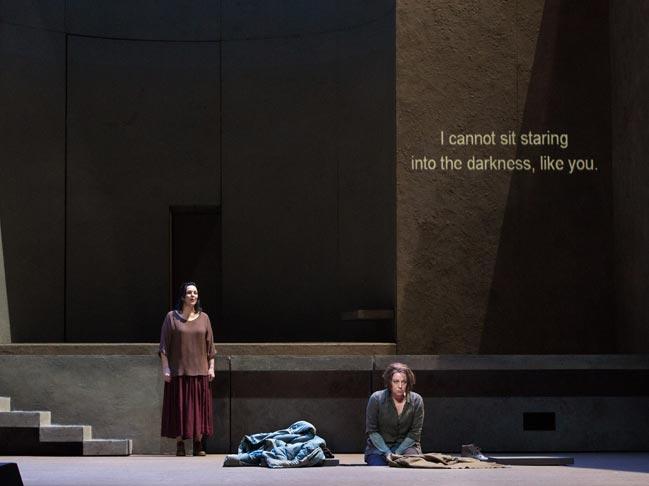
Christine Goerke sings her first Elektra at the Met in Patrice Chéreau’s landmark production, a sensation at its Met premiere last spring, which the Wall Street Journal called “revolutionary … a triumph on all fronts.” Yannick Nézet-Séguin conducts Strauss’s shattering score, a tour de force for the singers and the orchestra alike.
Dates 01 Mar – 23 Mar 2018
World premiere: Court Opera, Dresden, 1909. Met premiere: December 3, 1932. Shortly after conquering the opera world with his scandalous masterpiece Salome, Richard Strauss turned to Hugo von Hofmannsthal’s recent adaptation of Sophocles’s Electra for his next project. The resulting opera is an intense and still-startling work that unites the commanding impact of Greek tragedy with the unsettling insights of early-20th-century Freudian psychology. The drama unfolds in a single act of rare vocal and orchestral power.
Creators
Munich-born Richard Strauss (1864–1949) composed an impressive body of orchestral works and songs before devoting the second half of his long and productive career to the stage. Elektra marks his first collaboration with Viennese author and poet Hugo von Hofmannsthal (1874–1929), who would go on to write five other librettos for Strauss over the following 20 years, in one of the most remarkable partnerships in theater history.
Production – Patrice Chéreau
Stage Director – Vincent Huguet
Set Designer – Richard Peduzzi
Costume Designer – Caroline de Vivaise
Lighting Designer – Dominique Bruguière

Setting
The story takes place in Mycenae, Greece, some years after the end of the Trojan War. This mythically resonant era has inspired opera composers for centuries, including Monteverdi (Il Ritorno d’Ulisse in Patria, 1640), Gluck (Iphigénie en Tauride, 1779), Mozart (Idomeneo, 1781), Strauss himself (Die Ägyptische Helena, 1928), and, more recently, Marvin David Levy (Mourning Becomes Electra, 1967). The Met’s production is set in an unspecified contemporary space.
Music
The orchestra for Elektra is often cited as the largest for any repertory opera. It opens and closes the drama with a crashing motive that represents Agamemnon, Elektra’s father, who even in death dominates the lives of his family. The score encompasses an astonishing range of musical color: there are moments of sublime lyricism when the characters express tenderness or love, and there is brutal, harsh dissonance when they are at (or beyond) the bounds of sanity.
More Opera’s
On Stage 2017–18
La Boheme
Cavalleria Rusticana & Pagliacci
Cendrillon
Les Contes d’Hoffmann
Cosi fan tutte
Elektra
L’Elisir d’Amore
The Exterminating Angel
Hansel and Gretel
Lucia di Lammermoor
Luisa Miller
Madama Butterfly
The Magic Flute
The Merry Widow
National Council Grand Finals Concert
Norma
Le Nozze di Figaro
Parsifal
Requiem
Romeo et Juliette
Semiramide
Thais
Tosca
Il Trovatore
Turnandot
Die Zauberflote













































